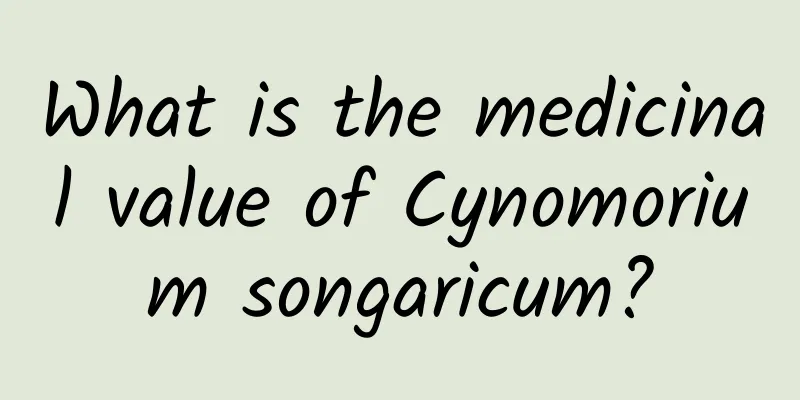Effects and functions of roasted aconite

|
The study of traditional Chinese medicine is extremely complex, as there are tens of thousands of types of Chinese medicinal materials alone. Moreover, each Chinese medicinal material has been passed down through thousands of years of culture. There is a Chinese medicinal material called roasted aconite, which probably few people have heard of. It is mainly made from the dried rhizome of a plant called Aconitum. So what are the effects and functions of processed Aconitum? The efficacy and function of Aconite Stop diarrhea, reduce swelling, eliminate rheumatism, restore yang and replenish fire, dispel cold and relieve pain. 1. Huiyang Jiuni (Yang Loss) is used to treat Yang Loss syndrome with cold limbs, spontaneous cold sweat, and weak pulse, and is used together with dried ginger and licorice, such as Sini Decoction. It is used to treat Yang loss and Qi deficiency, and is used together with ginseng, which greatly replenishes the original Qi, such as Shenfu Decoction. This product is very powerful and can help the heart yang to unclog the meridians, replenish the kidney yang to benefit the fire, and save the lost primordial yang. It is the "first-class medicine for restoring yang and rescuing adverse conditions" in clinical practice. 2. Tonify fire and strengthen yang (all symptoms of yang deficiency). It is used to treat impotence and spermatorrhea, infertility due to cold uterus, cold pain in the waist and knees, and frequent urination at night caused by insufficient kidney yang and weak fire in the gate of life. It is used together with cinnamon, deer antler glue, etc., such as Yougui Pills. It is used to treat cold pain in the abdomen and loose stools caused by deficiency of spleen and kidney yang and excessive cold and dampness. It is used together with Codonopsis pilosula, Atractylodes macrocephala, etc., such as Fuzi Lizhong Decoction. This product helps the heart yang, warms the spleen yang, and replenishes the kidney yang. It can be used by those with weak yang in the heart, spleen, and kidney. 3. Dispel cold and relieve pain (all kinds of pain caused by cold stagnation). It is used to treat pain caused by cold arthritis. It can both warm and relieve pain and expel wind, cold and dampness. This product has strong analgesic effect and is an important medicine for treating cold arthritis. 4. Leading drugs: Aconite has a strong nature and can be used in combination with other drugs to lead the drugs directly to the meridians. It can guide Qi-tonifying drugs to circulate through the twelve meridians to recover the lost Yuan Yang; guide blood-tonifying drugs into the blood to nourish the insufficient True Yin; guide dispersing drugs to the skin to expel the wind and cold on the human body surface; guide warming drugs to the lower Jiao to eliminate the cold and dampness in the body. 5. Tonify the kidney and strengthen yin: Aconite enters the heart, spleen, and kidney meridians, and enters the Shaoyang triple burner and life gate. It tastes spicy and very hot, and is the yang among yangs. Therefore, it is effective in tonifying the kidney and strengthening yin. It is used for symptoms such as urinary obstruction, kidney qi ascending, and bladder pain. Indications It is used for yang deficiency, cold limbs and weak pulse, impotence, cold uterus, cold pain in the heart and abdomen, vomiting and diarrhea due to deficiency-cold, edema due to yin cold, yin jaundice and fatigue, exogenous infection due to yang deficiency, arthralgia due to cold and dampness, dysmenorrhea due to cold stagnation, yin carbuncle, longevity leakage and all diseases caused by deep and chronic cold. It is commonly used in modern clinical practice for coronary heart disease, cor pulmonale, rheumatic heart disease, sinus tachycardia, conduction block, nephritis, chronic renal failure, cardiogenic shock with heart failure, and thromboangiitis obliterans. Aconite Components and Modern Pharmacological Research Modern research shows that aconite can enhance myocardial contractility, speed up heart rate, increase cardiac output, and increase myocardial oxygen consumption; aconite can dilate blood vessels, increase blood flow, and improve blood circulation; it can strengthen the heart and resist shock; it has a significant anti-bradyarrhythmia effect; in addition, aconite n-butanol, ethanol and water extracts all have a preventive effect on chloroform-induced ventricular fibrillation in mice; aconite can also resist cold and improve the ability to tolerate hypoxia; the decoction also has a significant inhibitory effect on the acute inflammatory model; aconite can further worsen Yin deficiency syndrome and improve Yang deficiency syndrome; in addition to the above effects, aconite also has the effects of enhancing immunity, resisting thrombosis, inhibiting lipid peroxidation, and delaying aging. It mainly contains diacetate-type biological alkaloids, such as aconitine, metaconitine, hypoconitine, noracetyl salsolarine, etc.; it also contains monoester-type biological alkaloids, such as benzoyl metaconitine, benzoyl aconitine, benzoyl hypoconitine, etc. Diester-type bioalkaloids are the main active and toxic components of Aconite. It has cardiotonic, vasodilatory, analgesic, anti-inflammatory, anti-ulcer and anti-shock effects. 1. Aconite has obvious cardiotonic and blood pressure-raising effects. 2. Aconite can dilate peripheral blood vessels and has a protective effect on acute myocardial ischemia. 3. Aconite has anti-inflammatory effects. 4. Aconite has sedative and analgesic effects and can restore body temperature. 5. Aconite has a certain effect on improving the body's immune function. 6. Aconite can promote platelet aggregation, inhibit cell stabilization and protein denaturation. 7. Aconite has anti-ulcer and laxative effects. 8. Aconite has a significant effect in lowering blood sugar. 9. Aconite can stimulate local skin, mucous membranes and sensory nerve endings. 10. The component of lindermatine contained in aconite can significantly reduce the renal blood flow of rabbits and reduce the excretion of sodium in urine. Contraindications It is forbidden to be taken by patients with Yin deficiency and Yang excess, true heat and false cold, and pregnant women. Evil centipede. It is afraid of fangfeng, licorice, astragalus, ginseng, black leek, soybean, mung bean, black leek, urine of children, and rhinoceros horn. Avoid soy sauce and millet. This product is anti-Trichosanthes, Bletilla striata, Pinellia ternata, Bletilla striata, and Fritillaria thunbergii. |
<<: The effect of drinking asparagus soaked in water
>>: Effects of Chinese medicine Alpinia oxyphylla
Recommend
The efficacy and function of clear eggplant
Clear eggplant is a kind of traditional Chinese m...
Sichuan and Chongqing dialects dominate the nation's laughter
Loading long image... Source: National Geographic...
The best in Shennong's Herbal Classic, also a secret of Chinese medicine
People often say: The secret of Chinese medicine ...
Will I be iodine deficient if I stop eating seafood?
In the age of universal iodine supplementation, p...
Is soup a kind of "junk food"? How can we drink soup scientifically?
Soup is a nutritious and nourishing dish on many ...
Why has the British Museum come to this? The original intention behind its more than 8 million collections has disappeared!
You must have heard “The best cultural relics in ...
The efficacy and function of Selaginella yanzhouensis
Traditional Chinese medicine is very helpful in t...
Before driving, you need a good piece of rubber!
This article was first published by Hunzhi (WeCha...
Rather than worrying about whether you can eat shrimp heads, you should pay more attention to this issue.
Audit expert: Wang Guoyi Postdoctoral fellow in N...
The efficacy and function of vulture
Vulture is a medicinal material. If we have some ...
Are nuclear power plants still safe amid the Russia-Ukraine conflict?
Due to the war between Russia and Ukraine, the si...
Peony is a condiment in the past.
Peonies fade and peonies bloom, which is the time...
"Buzz buzz buzz", next time you hear the sound of a mosquito, remember to slap it hard!
Mosquitoes appeared on Earth hundreds of millions...
The correct way to eat Moringa seeds
Moringa seeds have always been a controversial Ch...









